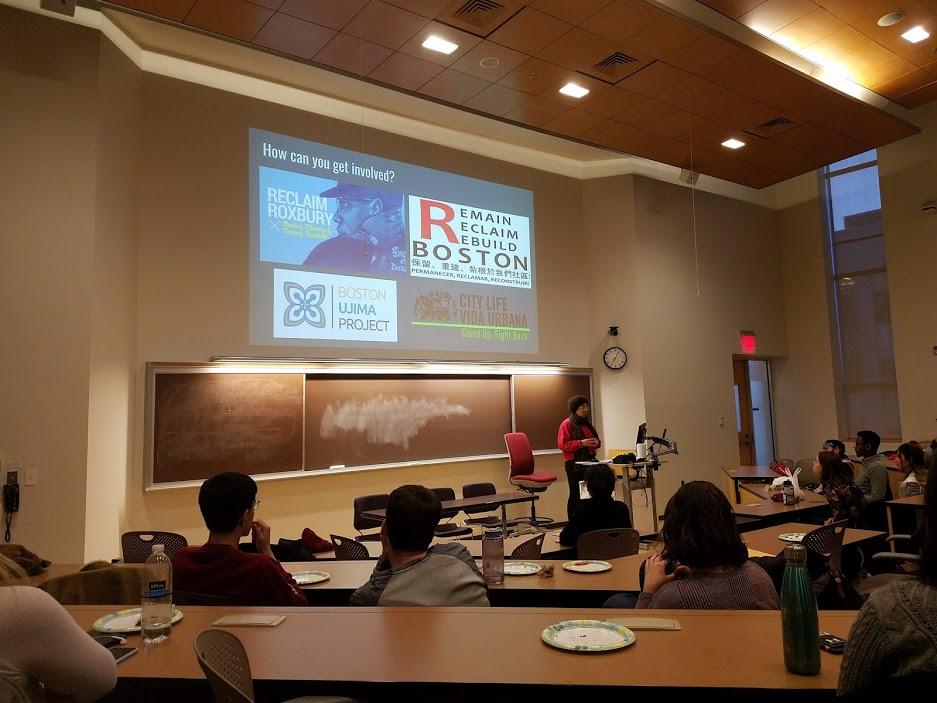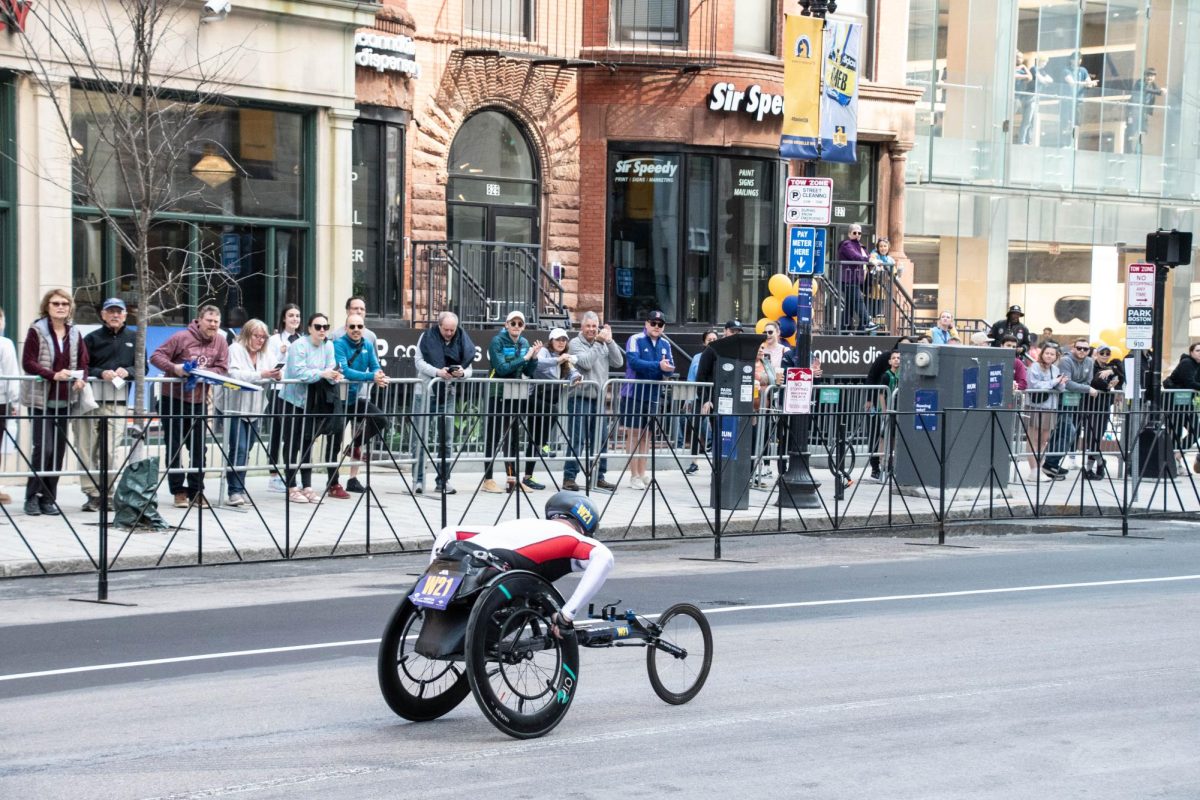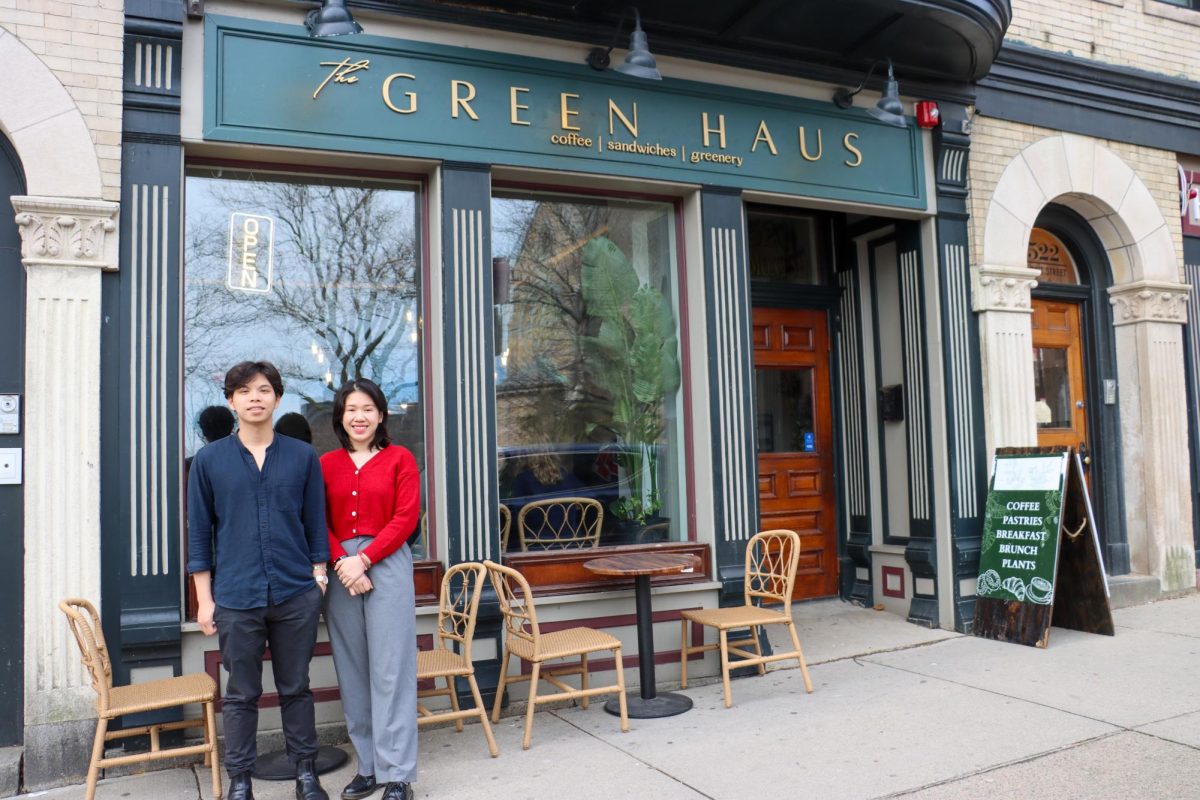By Sam Cronin, news staff
Conversations ranged from Northeastern’s role in gentrifying nearby neighborhoods to Boston’s history of housing displacement at the Northeastern Housing Justice Coalition campaign kickoff meeting March 26 at Dockser Hall.
Prasanna Rajasekaran, a fifth-year economics major and organizer of the Housing Justice Coalition, or HJC, started working with the group last spring. Students in HJC are working to change the way Northeastern builds new developments as the university expands into the local community.
The group’s primary mission, Rajasekaran said, is to end Northeastern’s gentrification-promoting policies and give more decision-making influence to members of the communities that the university builds in.
“I was a part of the original group as an anti-gentrification effort to understand Northeastern’s effect on neighborhoods: raising rent, displacing residents of Roxbury, Mission Hill,” Rajasekaran said.
Amanda Govan, a Roxbury resident and member of the community advocate group Reclaim Roxbury, spoke at the kickoff about the effects of gentrification in her neighborhood. She talked about generational security, or the idea that someone can pass their property onto their children. As neighborhoods are gentrified, she said, people can lose their property and the ability to pass it onto the next generation.
“As a young girl, I felt welcome and safe,” Govan said. “I can’t help but feel uneasy because generational security is something I cannot give [my children]. We are too often prejudged or disregarded. I would be devastated if I couldn’t live here.”
Another guest speaker, Roxbury resident and Northeastern third-year communication studies major Luis Aponte, said he has watched the neighborhood change drastically in a very short period of time. With all the development happening in the area, many families are being displaced and small businesses put in jeopardy.
“Sometimes I feel helpless, to see my neighborhood changed,” Aponte said. “While you still can, go to Roxbury, support businesses, talk to people. Losing that [community], it’s very real.”
Joseph Taché, a fifth-year Northeastern student and one of the leaders of the Housing Justice Coalition, said the university has an especially large impact on gentrification in neighborhoods like Roxbury.
“Northeastern has put itself in a bad position [by] putting students out as gentrifying agents,” Taché said.
Taché said the new Burke Street residence hall, scheduled to open August 2019, is an example of how Northeastern is gentrifying the Roxbury community. Although Roxbury should not have buildings taller than 65 feet, according to Article 50 of the Boston zoning code, certain larger projects can be exempted from this rule. The new Burke Street residence hall, reaching 20 stories and 230 feet tall, is one of those projects.
Boston’s zoning code requires hopeful builders to host public meetings to discuss progress on building projects, and Taché said local residents frequently come to these meetings to voice their discontent. Protesters have rallied against the residence hall and its impact on Roxbury since Northeastern announced the project in 2016, as The News previously reported.
“It’s a complete violation of the spirit of what Roxbury is supposed to look like,” Taché said. “It’s pumping huge numbers of students into an area that has been black and disinvested in. Zoning code doesn’t matter if you’re building things that bring in money. Northeastern students, whether we like it or not, are complicit.”
Taché discussed historical examples of disinvestment and displacement, such as the efforts to build interstates through Boston in the 1940s and 1950s. These projects led to the demolition of hundreds of homes in Cambridge, Somerville and Boston before the Governor cancelled them. Rising rent rates, exclusionary displacement and isolation due to drastic neighborhood changes can cause displacement.
“I’m glad to see the amount of leaders come out of the struggle [against gentrification],” Aponte said. “We as students have to be allies, listen to what people are saying, and do what needs to be done.”














